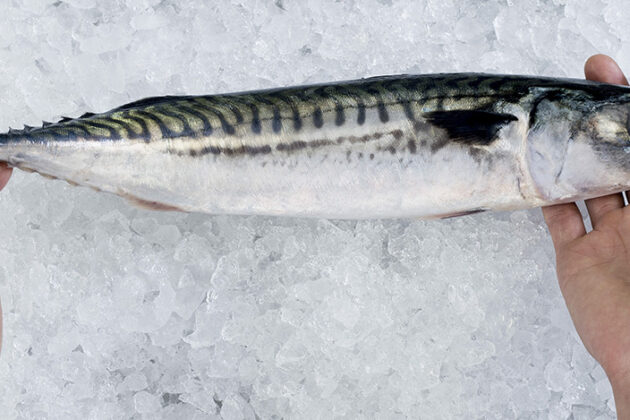Nordic mackerel
Improved quality and value of Nordic mackerel products for the Global market

The project will investigate the seasonal variation of the fish by carrying out comprehensive studies on how individual factors affect the quality of mackerel products at various stages in the value chain.
Start
01. Apr 2015
End
01. Apr 2018
Funded by
Nordic Innovation
Cooperation
Pelagia (NO), Sirdarvinnslan (IS), Gjøgur (IS), Vardin (FO), VMK-Arenco (SE), Matis (IS), Chalmers Univeristet (SE), Aarhus Universitet (DK)
Project Manager(s):
Other Participants:
Fish caught between the period July until April will be used in order to get an overview on how the fishing season affects processing and stability of products.
The variety of industrial partners participating in the project allows for wide comparison of different fishing gears and how catching methods can affect quality and stability of products. This includes trawl and purse seine as well as comparison of pumping the fish alive or dead.
On-board handling is of crucial importance in order to preserve the natural state of the fish and to minimize the degradation processes occurring post mortem. Immediate super-chilling of the catch has been shown to have positive effects on the overall quality of the fish, reducing deterioration activity without freezing the flesh. Such super-chilling makes the fish also less sensitive during further handling and processing including that of filleting.
Collected samples will undergo traditional primary processing (whole) at landing. The suitability of producing fillets mechanically will be investigated and compared with that manual filleting.
The effect of different freezing methods on stability and quality of frozen products will be evaluated by comparing contact, air and IQ freezing. Storage stability of frozen products will be determined through storage at -18 and -25°C/-30°C for up to 18 months. These temperatures are selected based on what is commonly used by many purchasers of mackerel products (-18°C) and what the Nordic mackerel industry uses (-25°C/-30°C).
Valuable information will be gathered which can ultimately improve the logistics of products to markets by simulating transportation by container from primary to secondary processor based on data recorded earlier in the project.
Several physico-chemical quality parameters will be evaluated to foresee if and then how the material is suitable for further processing such as smoking. Raw material from different parts of the season, caught and handled by various procedures and stored under different conditions will be smoked according to European market requirements.
Studies on alternative value chains and customer requirements will allow for the development of new value-added products tailored to specific market segments.
Files and Links